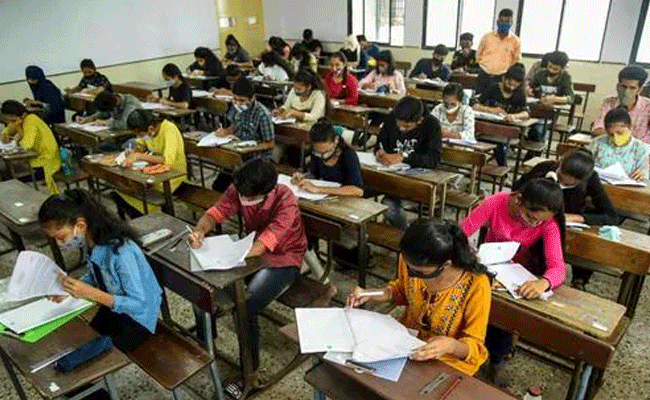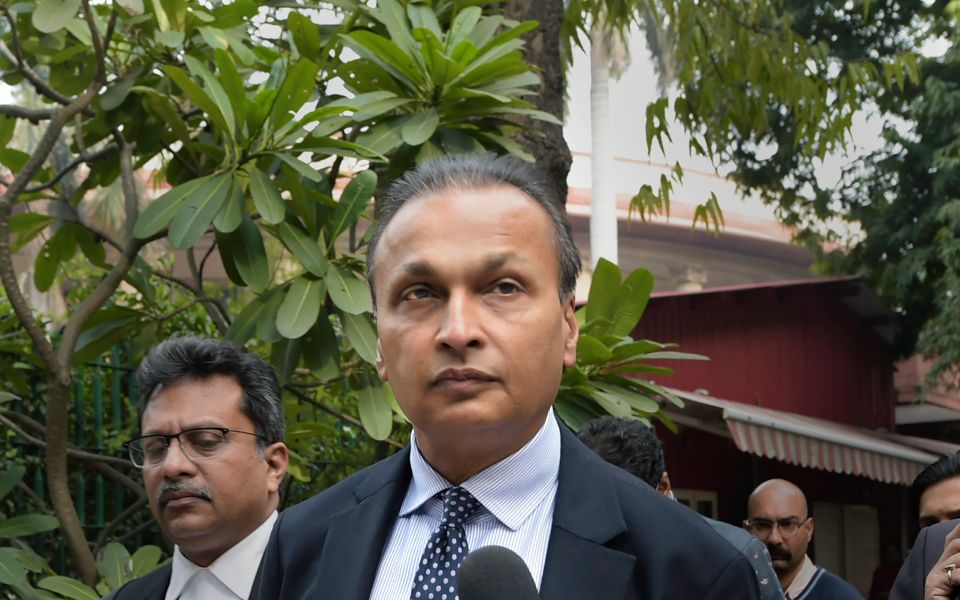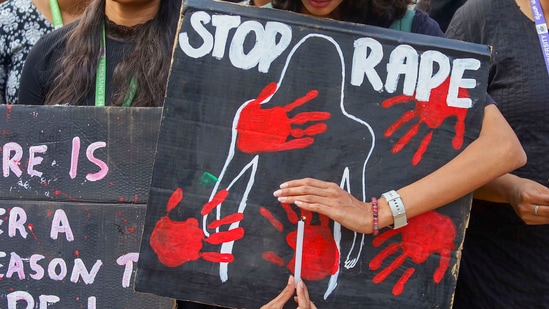New Delhi (PTI): Students will be able to get an undergraduate 'honours' degree after completing four years instead of three, according to new draft norms prepared by the University Grants Commission (UGC).
The draft 'curriculum and credit framework for four-year undergraduate programmes' prepared in accordance with National Education Policy is likely to be notified on Monday.
"Students will be able to get a UG degree in three years on completion of 120 credits (measured through the number of academic hours) and a UG honours degree in four years on completion of 160 credits.
"If they wish to go for a research specialisation, they will have to undertake a research project in their four-year course. This will get them an Honours degree with research specialisation," the draft read.
"Students who have already enrolled and are pursuing a three-year UG programme as per the existing Choice Based Credit System (CBCS) are eligible to pursue a four-year undergraduate programme. The university may provide bridge courses (including online) to enable them to transition to the extended programme," it added.
Currently, students get an honours degree after completing three years of undergraduate programmes.
The FYUP also allows multiple entry and exit options for students. If they leave before three years, they will be allowed to rejoin within three years of their exit and will have to complete their degree within a stipulated period of seven years.
The curriculum for FYUP, as suggested in the document, consists of major stream courses, minor stream courses, courses from other disciplines, language courses, skill courses, and a set of courses on environmental education, understanding India, digital and technological solutions, health and wellness, yoga education, and sports and fitness.
At the end of the second semester, students can decide to continue with their chosen major or change their major.
Students will also have the option to go for a UG either with single major or double majors.
"A student has to secure a minimum of 50 per cent credits from the major discipline for the 3-year/4-year UG degree to be awarded a single major," read the document.
Let the Truth be known. If you read VB and like VB, please be a VB Supporter and Help us deliver the Truth to one and all.
Mumbai, Jul 26 (PTI): Enforcement Directorate searches against the companies of Reliance Group chairman Anil Ambani in Mumbai continued for the third day on Saturday with the agency recovering a number of documents and computer peripherals from multiple locations, official sources said.
The raids were launched on July 24 by the federal probe agency as part of an alleged Rs 3,000 crore worth bank loan fraud-linked money laundering case apart from multiple other allegations of financial irregularities with crores of rupees by certain companies.
The searches, being conducted under the Prevention of Money Laundering Act (PMLA), are continuing at some locations out of the more than 35 premises that were covered in Mumbai since Thursday, the sources said.
These premises belong to 50 companies and 25 people including a number of executives of the Anil Ambani Group companies.
ED sources had said the investigation primarily pertains to allegations of illegal loan diversion of around Rs 3,000 crore, given by the Yes Bank to the group companies of Ambani between 2017-2019.
Reliance Power and Reliance Infrastructure, two companies of the group, had on Thursday informed the stock exchanges saying while they acknowledge the action, the raids had "absolutely no impact" on their business operations, financial performance, shareholders, employees, or any other stakeholders.
"The media reports appear to pertain to allegations concerning transactions of Reliance Communications Limited (RCOM) or Reliance Home Finance Limited (RHFL) which are over 10 years old," the companies had said.
The ED, the sources had said, has found that just before the loan was granted, Yes Bank promoters "received" money in their concerns.
The agency is investigating this nexus of "bribe" and the loan.
The sources said the ED is also probing allegations of "gross violations" in Yes Bank loan approvals to these companies including charges like back-dated credit approval memorandums, investments proposed without any due diligence/credit analysis in violation of banks credit policy.
The loans are alleged to have been "diverted" to many group companies and "shell" (bogus) companies by the entities involved.
The agency is also looking at some instances of loans given to entities with weak financials, lack of proper documentation of loans and due diligence, borrowers having common addresses and common directors in their companies etc., the sources said.
The money laundering case stems from at least two CBI FIRs and reports shared by the National Housing Bank, SEBI, National Financial Reporting Authority (NFRA) and Bank of Baroda with the ED, they said.
These reports indicate, the sources said, that there was a "well-planned and thought after scheme" to divert or siphon off public money by cheating banks, shareholders, investors and other public institutions.
The Union government had informed the Parliament recently that the State Bank of India has classified RCOM along with Ambani as 'fraud' and was also in the process of lodging a complaint with the CBI.
A bank loan "fraud" of more than Rs 1,050 crore between RCOM and Canara Bank is also under the scanner of the ED apart from some "undisclosed" foreign bank accounts and assets, the sources said.
Reliance Mutual fund is also stated to have invested Rs 2,850 crore in AT-1 bonds and a "quid pro quo" is suspected here by the agency.
Additional Tier 1 (AT-1) are perpetual bonds issued by banks to increase their capital base and they are riskier than traditional bonds having higher interest rates. An alleged loan fund diversion of about Rs 10,000 crore involving Reliance Infrastructure too is under the scanner of the agency.
A Sebi report on RHFL is also part of the ED probe.
The companies also said in their filings before the stock exchanges that Anil Ambani was not on the Board of either Reliance Power or Reliance Infrastructure and that they had no "business or financial linkage" to RCOM or RHFL.
Any action taken against RCOM or RHFL, the companies said, has no bearing or impact on the governance, management, or operations of either Reliance Power or Reliance Infrastructure.





